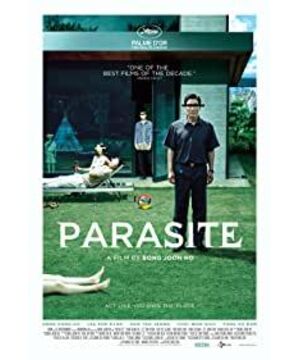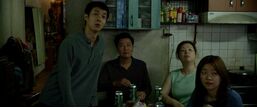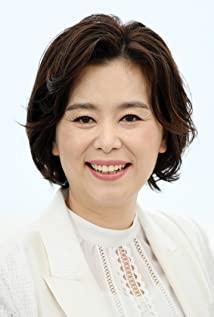Author: Tony Rayns (Sight & Sound)
Translator: csh
The translation was first published in "Iris"
Although Feng Junhao is brilliant, he attributes most of his success to his Hitchcock style. He is not betting on blind respect (he is not Brian DePalma), nor is he obsessed with suspense psychology or guilt empathy. However, he did follow Hitchcock's creative path. He carefully planned his films with detailed storyboards, which plunged him into intricate plots and gave him a keen sense of the attraction of suspense.
In addition, he also mastered Hitchcock's skills to attract empathy from the audience. He often asks the audience to identify with characters who perform poorly and are in moral dilemma. His sense of humor is very similar to Hitchcock, and perhaps he also likes that kind of weird visual impact. ("Scary" left a deep impression on him.) The most important thing is that he learned Hitchcock's skills to conceal serious intentions and create entertainment effects.
Of course, the movie is different from the plot summary. Feng Junhao often had to change his early production plan due to unfavorable circumstances, especially in the early stages of his film career: "Knock the Doorway Dog" (2000) was almost at the last moment. It was cancelled, because the star who had decided to participate in the show withdrew from the crew, so the producer cut the budget drastically. Feng Junhao had to adjust some scenes and improvise while working hard to deal with this crisis. In the book "Bong Junhao" in 2008, he included a very long interview in which he frankly discussed the plight of the time.
In the same interview, he also pointed out in detail that in order to reduce the workload of CGI to an acceptable range, he made a lot of adjustments to "Han River Monster" (2006). Even "Snow Country Train" (2013) almost had a miscarriage. At that time, he was preparing to shoot in Prague, but the key production funds suddenly disappeared-and a long time later, Harvey Weinstein told Feng Junhao that he Hope this movie will be edited again.
Facts of life
Watching a finished movie is obviously more interesting than looking back at the sometimes frustrating history of creation. However, we should first determine who Bong Junhao is.
Bong Joonho was born in Daegu in 1969. His father Bong Sang-kyun is a graphic designer and university teacher, and his mother is a former elementary school teacher. She is a famous novelist Park Tae-won in the 1930s. (During the Korean War, he defected to North Korea, South Korea’s anti-communist The government often punishes the daughters of these people’s relatives, and she suffers political and economic persecution for this. Bong Junhao is the youngest of the four children. According to Bong Junhao himself, he is a lonely and introverted boy with good grades in school and has spent a lot of time drawing cartoons.
In middle school, he became a movie fan and watched all the abridged movies shown on domestic TV. He also tuned to the U.S. military radio and television channel-technically speaking, this is illegal, but even hotels do it- -And began to consider a career in film production. His family is Catholic, and he learned about the evils of South Korea’s military dictatorship and the fact that in 1980, soldiers in Gwangju slaughtered unarmed civilians at home and in the Bible squad.
He studied sociology at Yonsei University in Seoul-in "Parasite" (2019), his son Ki Woo's fake diploma says "Yonsei University"-like most students of his generation, he is also against The government's pro-democracy activists. He was imprisoned for a month for participating in an "illegal" teacher union demonstration when he was in the same room with various "little criminals." These criminals later became the prototypes of the characters in "Han River Monster" and other movies. In the end, he was sentenced to probation on the condition that he must directly perform military service, so he did not graduate from Yonsei University until 1993. At that time, he made his first short film "The White Man" (1993) in the university movie club, where he also met his future wife.
Then, he entered the Korean Academy of Film Arts (KAFA) for two years, and his graduation work was an extraordinary short film "Split and Fracture" (1994). In this film, you can already see the themes, satirical humor and some special visual effects in his later works (including "Parasite"). This work is divided into three main parts and a concluding paragraph, which presents the immoral behavior of adults. The end of the work shows that these three "criminals" are considered to be the pillars of a conservative society, and they also discussed social morality in a TV talk show. Screening at domestic and international film festivals quickly made this film the most watched KAFA student work ever.
What is lacking in the works of his early career is the sensitivity to the social and political background. The struggle against dictatorship military rule (including all martial law, censorship, economic control, and violent suppression of dissidents) overflowed in the 1970s and 1980s, which prompted an entire generation of people to become "awakened" activities Family. In 1988, the authorities lifted some restrictions, Seoul hosted the Olympic Games and began to develop farmland in Gangnam District (a large area of land on the south bank of the Han River) into a modern metropolis. However, a lot of tear gas can still be seen on the streets of the city, and anti-government activism will continue for five years. In 1993, after civilian Kim Young-sam was elected president, there was a noticeable change in the way ordinary people speak and act. However, the nepotism and corruption during Kim Young Sam’s administration quickly recalled cynicism and pessimism.
Bong Joon-ho's films (including "Parasite") have always reflected the South Korea he grew up in and the deep doubts of his generation about the way the country operates. "Parasite" explores the inequality of society-class estrangement-this situation is obviously not limited to South Korea. In those works that directly respond to social reality, we can see more culturally specific narratives. For example, in "Memories of Murder" (2003), we can see the incompetence and violent tendency of the police, which awakens the minds of Korean audiences Those in the middle belong to the memory of the 1980s. The memories of unsettled cases in real life are as vivid as this kind of memory.
In "Han River Monster", when the authorities and reluctantly submissive media released false news, falsely claiming that a contagious virus was more threatening than the monsters in the Han River, a large number of working-class civilians were evacuated to the refugee area. middle. In "Parasite", we can also hear echoes not far away: floods and overflowing sewage drove the Jin family out of the basement. As for the two educated Pu family children in "Han River Monster", their role setting is obviously influenced by the background of the school movement: their daughter Pu Nam Joo uses her shooting skills like the Third World guerrillas (you can imagine, She might put Che Guevara's poster on the wall of the dormitory); her youngest son, Park Nam Il, can make and throw incendiary bombs, and his lightheartedness is reminiscent of the fierce battle around Seoul City Hall.
Sometimes, Feng Junhao's inspiration comes directly from himself. He once regarded "The Kidnapping of a Dog at the Door"-he wanted to call it "Advanced Animals", but this was rejected by the sales agent-as his "most personal movie." He also said, "I think My goal is to maintain and show my personality."
The film is not completely autobiographical, but the protagonist Won Joon is a metaphorical portrayal of Bong Joon Ho himself. Yuan Jun is a university lecturer. When his wife was out to earn money, he spent the summer in his simple apartment, hoping to get a tenure faculty position. At this time, Feng Junhao, who is nearly 30 years old, also hopes to find a place in the film industry. In fact, the apartment where Yuanjun lived is the same as the apartment where Bong Junhao and his wife lived at the time. As played by Lee Sung Jae, Won Joon’s character looks gentle and calm on the surface, but he is very annoyed by the barking of a puppy somewhere in the apartment. Then he found that he was capable of making terrible actions: for example, throwing a dog from the roof, or bribing the dean of the university to get the job he wanted. (Are the two morally equivalent?)
This model continued in "Parasite"-Feng Junhao spent more than half of the film's time, constantly switching between two completely different roles. Yuan Jun, who lives upstairs, basically did nothing, which made the smallest stimulus his main trouble. And Qian Nan (played by Bae Dou Na) is sitting in the real estate management office downstairs. She has not received a very good education, but she is ethical and enterprising. She has no career prospects, but she is always very friendly and considerate.
Bong Junhao's smartest idea was to combine these two completely different roles to interpret the theme of missing and stolen puppies. This technique also appears in the short film "Splitting and Breaking". In this work, a security guard's rice cooker is destroyed in the most unusual way (I am careful to avoid spoilers). The most amazing thing about this narrative structure is that it refuses to abide by any prevailing norms. "The Kidnapping of the Doorway Dog" did not follow any conventions, and in 2000, it was even politically incorrect. Perhaps because of this, it took so long for Korean critics and audiences to notice it.
Bong Joon-ho’s favorite subject matter is crime thrillers, but in most of his films, crimes are pending. Indeed, "Mother" (2009) is the only work of this kind that achieves a narrative closure: an unpowered but indomitable old woman determined to "fight" the police and tried every means to get her wrongful accusation His son is exonerated. In the end, she won the victory, although the final result was very unexpected.
In Memories of Murder, we cannot attribute the serial killings to any one of the three main suspects, because when Bong Joon-ho made this work, these 1980s cases were in real life Still not resolved. (Last year, DNA technology finally linked a certain suspect with a crime.) Among these threats, the "difficult to resolve" nature is one of the important issues dealt with by these films.
The class rebels in Snow Country Train and the ecological activists in Yuzi (2017) are more like heroes than criminals, but both works emphasize how limited their victories are. In fact, Feng Junhao has a certain instinct, he always avoids the orthodox, general ending and narrative closure, which also reflects his ambivalence towards the type of film. He is very happy that his films can be given a certain type of identity, but if he can present a large reversal or a black humorous narrative plot, he will be even more happy.
Monster's success
Bong Joonho’s most acclaimed films-"Memories of Murder", "Mother" and now "Parasite"-are relatively small Korean projects, so many people want to know what made him devote himself to For larger, more dazzling blockbusters (mainly English movies), such as "Snow Country Train" and "Yuzi" and so on. When discussing this issue, the cultural environment becomes very important, although personal factors also play a certain role.
There is no doubt that the main motivation is to enter a market larger than South Korea's population (a little less than 52 million). Bong Joon-ho’s colleagues Park Chan-wook and Kim Ji-woon both experienced well-documented struggles when they were making English-language films in Hollywood. The two directors filmed "Stoke" (2013) and "Lastly" (2013), but they were both regarded as failures.
A French graphic novel inspired Feng Junhao's creation of "Snow Country Train". He made this film, apparently trying to follow in the footsteps of the above two people. However, he did not engage in difficult and frustrating negotiations with Hollywood bosses. When filming "Yuzi", he accepted a discretionary commission from a non-studio investor (Netflix reluctantly paid all the budget without imposing any restrictions or making any changes), but he also Give up the theater distribution model that he prefers. As always, Feng Junhao has been seeking success in his own way.
We can only think about his personal factors. Before Bong Joon Ho started making "Memories of Murder", he once promoted the concept of "Han River Monster" to the producers (essentially speaking, it is the Loch Ness monster in the Han River). However, when he took his own budget and visited several visual effects companies far apart, he was met with a series of humiliations. When he was making "Snow Country Train" and "Yuzi", he was able to obtain the visual effects he wanted without compromise, which may have eliminated his unpleasant experiences. Orson Wells once said that the director controls all the resources of a studio, which is like giving a boy the largest train in the world. This motto may also explain his freedom. In addition, Bong Jun-ho, as a fandom director, may realize that South Korea has never created a monster movie—apart from a few parody of Japanese Godzilla movies—this is also a motive that can be considered.
In 1960, the image of Alfred Hitchcock was already known for television introductions and guest roles in movies. He put himself in trailers and commercials, asking viewers not to reveal the ending of "Cry". In 2019, Feng Junhao published a "Pleasant Word" in the Cannes release material of "Parasite", which wrote: ""Parasite" is not a movie established by a huge reversal of the ending. Watching In a particular Hollywood movie, an audience who has just watched it may scream in the theater: "Bruce Willis is a ghost!" At this time, the waiting audience will fall into crazy depression and In anger. "Parasite" is obviously not such a movie." However, he continued to "plead" the audience not to spoil them.
What is very subversive is that when he presents the title and subtitles, he has already become what he calls a "spoiler." He replaced the circles in the Korean alphabet with spiral patterns. Well, I won't say more.
View more about Parasite reviews










